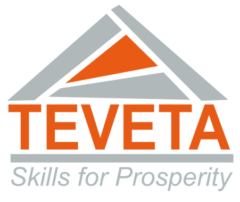The Technical, Entrepreneurial and Vocational Education and Training (TEVET) Authority is a regulatory body that was established in 1999 by an Act of Parliament with the mandate to regulate, promote and facilitate sustainable provision of quality technical, entrepreneurial and vocational education and training in Malawi.
The Malawi TEVET System is based on the principle of Competence Based Education and Training (CBET); a methodology which is embraced in delivery and assessment of all TEVET programmes. This falls under the strategic area of focus of regulation and compliance which aims at ensuring that all TEVET programmes are executed based on acceptable local and international standards and regulations.
TEVET Assessment is a comprehensive, systematic and continuous process of verifying achievement of desired learning outcomes by students or trainees undergoing TEVET.
The TEVET assessment process aims to recognise skills and values (competence) acquired by trainees having undergone TEVET programmes that entail levels of competence. Specifically, the TEVET assessment checks and confirms whether a trainee has acquired the desired learning outcomes.
- Identification of learning outcomes
- Gathering of assessment evidence
- Evaluation of the evidence against the learning outcomes
- Forming a judgement whether a learner is competent or not
The above assessment process is followed by verification, which is defined as a process of ascertaining accuracy of assessment decisions.
There are two levels of verification, namely; Internal and External.
Internal verification is done within an institution to ensure a fair, valid and reliable assessment process done by a trainer other than the subject instructor/assessor at an accredited centre other than the trainer of a particular occupation.
The main purpose of internal verification is to:
- monitor assessment practice
- advise and support internal assessors
- check if there is accurate record keeping of assessment decisions
- prepare for external verification
- check the consistency of an assessment technique
The internal verifier is expected to undergo approved training on internal assessment and verification and should be a specialist in the subject area.
External verification is the process of checking consistency of the conduct, fairness, validity and reliability of the assessment process both at the institution and the industry. This is done by an external trainer/expert to check the internal verification process authenticating.
As an assessment process, verification leads to certification of successful TEVET students as evidence of learners’ achievement. The progress and achievements of the learner are registered. Learners who are unsuccessful on a particular competence repeat the competence and are reassessed.
TEVET Authority is responsible for the identification, selection and accreditation of External verifiers in consultation with the industry, for effective delivery of TEVET assessments.


